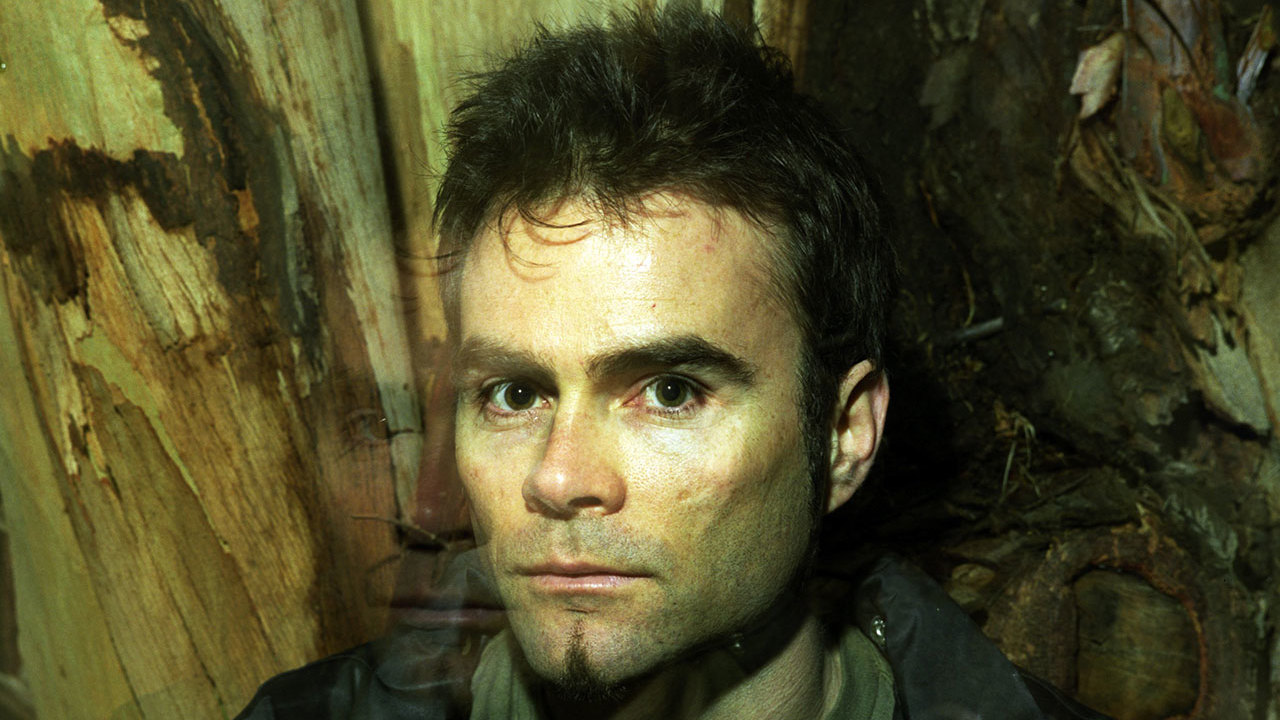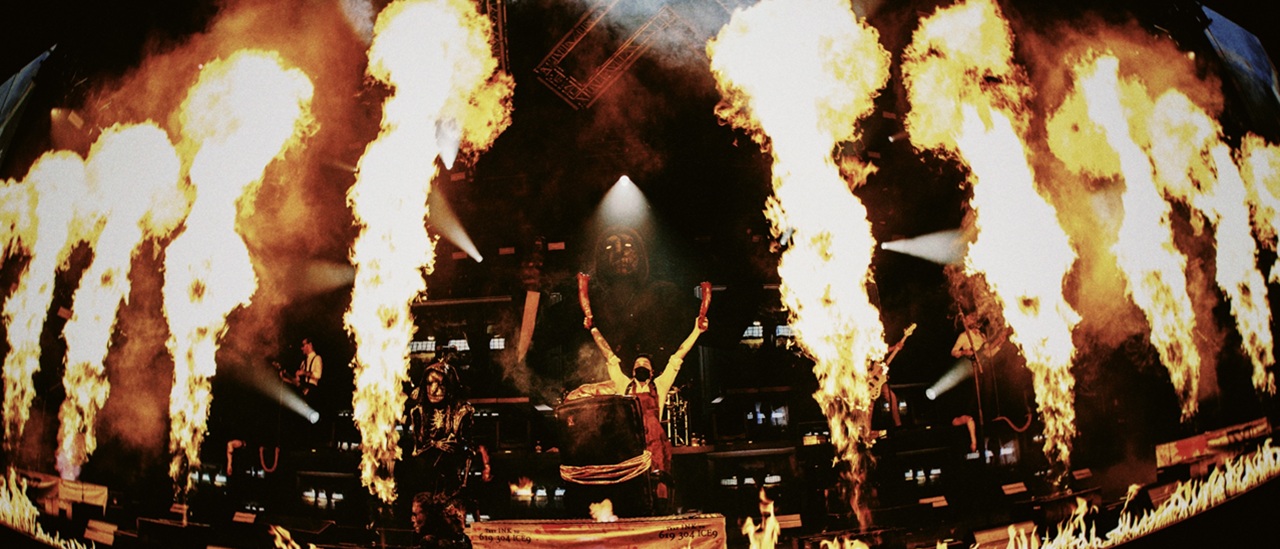Ross Robinson: the man who built nu metal
Every bit as important as the bands he worked with, producer Ross Robinson helped shape nu metal and provided some of the genre’s most insane moments

Ross Robinson is a genius. Yeah, yeah, you read that word attached to all kinds of inane shit, but Ross is a dyed-in-the-wool, no-messing-about genius who is credited as ‘The Godfather Of Nu Metal’ with good reason. That devastatingly guttural sound on the debut Korn album, the nihilistic fury of Slipknot’s self-titled masterpiece, the biggest and most critically acclaimed album of Sepultura’s career, the breakthrough works from Deftones and Limp Bizkit… All of these classic moments in metal history have been overseen by Ross’s unique methods.
He’s a free-spirited anarchist, a passionate hedonist and he often achieves his results by confusing the ever-living fuck out of people with his somewhat extreme methods. All truth be told, he’s a bit of a loon and a total one-of-a-kind, and that only makes us love him that little bit more.
“I’m used to people thinking I’m an oddball,” he reveals with good-natured intent, his voice softer than you’d expect, but his animated enthusiasm proving instantly infectious.
Ross spent years in thrash bands, most notably Détente, who signed to Roadrunner in Europe, and Murdercar, who also listed Machine Head drummer Dave McClain in their ranks. He then worked for free on albums by Fear Factory (producing Concrete) and 80s luminaries WASP (engineering The Crimson Idol).
But it was when Détente shared a stage in Hollywood with LAPD, who featured three members of Korn, that both his world, and the world of heavy music, changed forever. Just 18 months after meeting them as LAPD, Robinson was in a studio with Korn, working on their revolutionary debut album that would give birth to nu metal. “They had a lot of fun parts to their songs that were kind of Faith No More-ish,” Ross recalls. “They had heavy riffs but we just decided to take out anything that sounded remotely happy and left everything that was minor and dark.”
Despite the low-end guitar sound and unconventional attack from their rhythm section that initially assaults the senses, the real darkness of that debut Korn album can be found in Jonathan Davis. Heavy music’s lyrical content had always preached the message of being all-powerful and being part of metal’s all-encompassing fellowship, but Jonathan wrote about isolation, vulnerability and the trials and tribulations of being an adolescent weirdo.
The words alone were enough to make the skin crawl, but Davis’s pull and release of emotion remains to this day one of the most powerful vocal performances in the history of heavy music. Listen to Faget and marvel at its raw honesty and unflinching sincerity.
Sign up below to get the latest from Metal Hammer, plus exclusive special offers, direct to your inbox!
“Jon and I were a reflection of each other,” reveals Ross. “I care. I always want to know what the song is about, and the instruments and voice to permeate what the singer is singing about on a spiritual level and not just on a performance level. Musicians today forget that it’s not the sound or what you’re singing – it’s the invisible parts that move you that I try to capture from the people recording the music. That’s what people have forgotten about. People’s ears are starving to death from not having that in their music. We hit a bar very few are to hit. I learnt everything I used for the rest of my career with him. It was special.”
This nurturing, loving approach to bringing out a vocalist’s most intimate feelings is perhaps Ross’s most unique and rewarding production technique. Both Davis and Machine Head’s Robb Flynn can be heard crying on Robinson-produced records, and the initial bloodcurdling wails at the start of Slipknot’s Iowa album was a result of Ross getting Sid Wilson to record his feelings in the direct aftermath of his grandfather’s death. Hell, he even made Robert Smith of The Cure sob uncontrollably on a song that remains unreleased. It’s not a stretch to say that Robinson captures the soul of a band as much as he captures the music that soundtracked a generation.
“It’s a lonely place for me,” says Ross when we ask him about people’s reactions to this unconventional technique. “People treat me like I’m this animal freak but all I want is to capture the spirit that people have in them. I know it’s there – it’s just hidden behind layers and layers of the mind and I want to be able to bring that out. Fearlessness is the ultimate love.”
All of this has you sitting there wanting to know just how far Robinson will go to get those deep, authentic, raw emotions, right? While there are plenty of rumours online, Ross told us a story from when he was drafted in to help Jonathan Davis with his vocals on Follow The Leader that will blow your circuits.
“There were a whole bunch of strippers and crazy Mötley Crüe behaviour going on,” he laughs. “I put the microphone on the floor, put Jonathan on all fours and stood over his middle part. My hands were on him, on his shoulder muscles, and I told him, ‘Sing, and if I feel you holding back, I’m going to fucking hurt you.’ I was squeezing him and jabbing my thumbs in his neck and I wanted more from him! I was being romantic again because I wanted him to feel like he did that first time we worked together. I heard the tracks and they were playing to a click track and I wasn’t used to hearing Korn like that. They were so held back from what I was used to and Jonathan was trying and I hurt him. We got some good stuff but the people they were working with were looking at me like, ‘Who the fuck is this guy?!’”
If ever a band and producer were destined to be married in schizoid heaven, it’s Robinson and nine masked animals from Des Moines, Iowa. The debut album from Slipknot captures the purest sound of fury. If you were to imagine what that monkey at the beginning of 28 Days Later would listen to, it’s probably Eyeless and Surfacing on a loop. Blasting it out nearly 20 years after its release (yes, you’re that old), it still hasn’t lost one iota of the bile and white-hot rage that was nailed down at Ross’s famous Indigo Ranch studios in Malibu, California.
“Those guys were like soldiers,” he continues, every word crackling with wide-eyed gusto. “They came out to record before their deal was done, they had no money and they refused to take any financial help. They were starving and eating dog food recording that album. Mick’s tooth had to be pulled and he didn’t say anything. There was no support. It was just me and them and they were there to absolutely rip. That album was everything to them. Everything. It was Slipknot or death.”
Justifiably credited for his work with all of the genre’s pioneers, including working on the debut albums from Limp Bizkit (“We wrote seven songs in three days and that’s how on fire and creative they were. They were creative and committed… that changed after that record!”) and Deftones (“Always highly skilled songwriters and visionaries”), it wasn’t long until people were knocking on his door to bring ‘the Ross sound’ to their world. Unquestionably the greatest example of this came in the shape of Sepultura. The band that had recorded thrashing classics like Arise and Beneath The Remains had begun to experiment with groove on Chaos A.D., but it was the hypnotic nu metal trance that Robinson stamped all over their Roots album that cemented their status as bona fide metal legends.
“With Sepultura, I stole fire from them,” he says. “There was no rules. Get an idea and fucking do it. I didn’t push them to do anything stupid or that the fans wouldn’t like. I was just there to make sure the fire was bright and ripping and no rules to anything. No rules. We got a crazy album with drums everywhere and created something they didn’t think was possible in a studio. It was a free for all, a wild thing, and I loved that.”
Where there are successes, there are also failures. While we’ll defend Machine Head’s The Burning Red to the death, it’s nu metal production and the hip hop savvy vocal style employed by Robb Flynn on several tracks left critics and diehard metal fans scratching their heads.
“They were jumping into a world they didn’t belong in,” says Ross. “Robb was 100 per cent into it and his performance and intention was true – it just wasn’t right for that band to be making that style of record. The Blackening! Jesus! God! That was Machine Head to the max. I’d liked to have done that one!”
Following that, and after producing Vanilla Ice’s awful attempt at rap metal on Hard To Swallow (“We exposed the silliness of that genre and did something anti-everything… but nobody got it!”), the turn of the century saw Robinson turn his back on nu metal. Instead, he went on to make seminal, angular records with At The Drive-In (Relationship Of Command) and Glassjaw (Everything You Ever Wanted To Know About Silence).
So you weren’t bummed out to not work with nu metal’s second-generation bands like Linkin Park and Papa Roach? “Not at all,” he fires back instantly. “No way. No way. It doesn’t have anything to do with me and what I do at all. A good song is a good song and a lot of people can write good songs, but what we were recording were deep, transitional, life-altering movements.”
The only thing left to ask the eccentric genius at this juncture is this: after working on all of these classic albums and still using his talents to inspire and motivate bands to this day, just how would he like people to look at his 20-year-plus career?
“I just love to make music with people,” he says, his humility only surpassed by his sincerity. “We’re here to move the world and make records. People depend on music. Some people depend on records more than they depend on people and I always want to make sure we’re trying to make people feel the most they can possibly feel. What you’re capturing could change someone’s life so make it mean something.”
Originally published in Metal Hammer Presents… Nu Metal.
Devildriver’s Dez Fafara: "There were some terrible nu metal bands"
